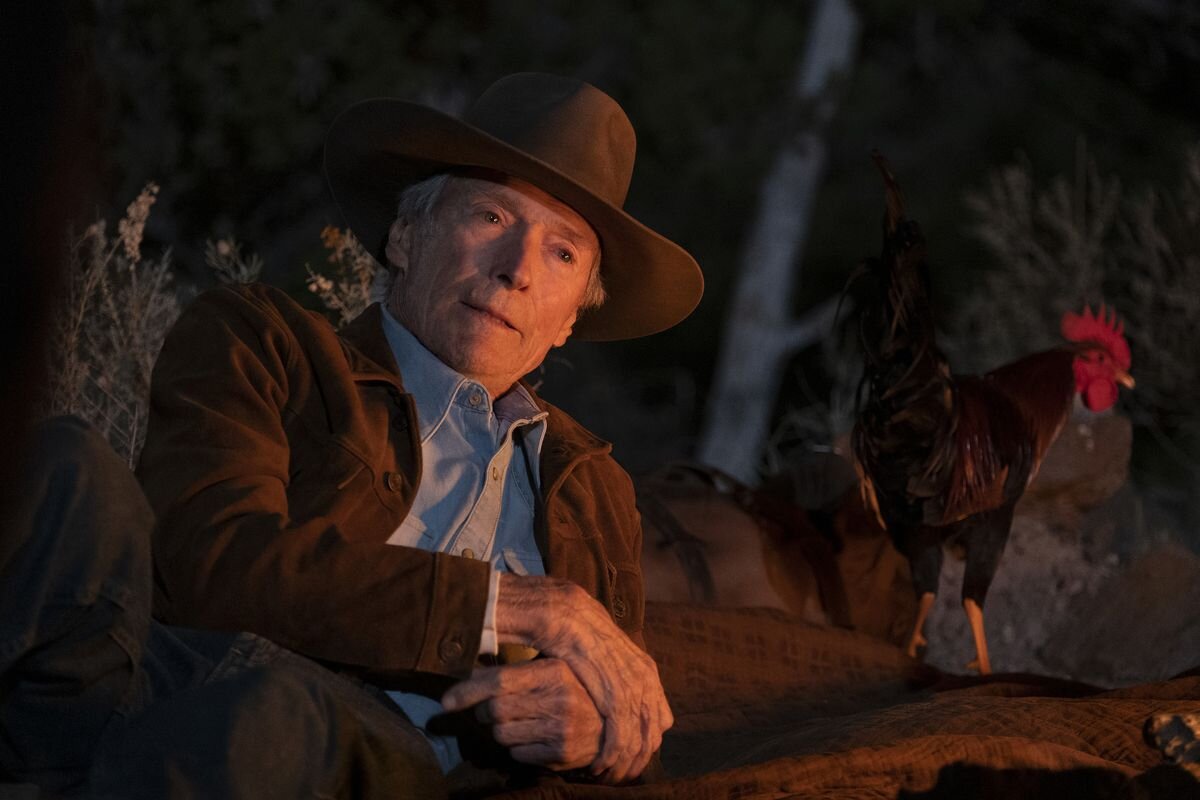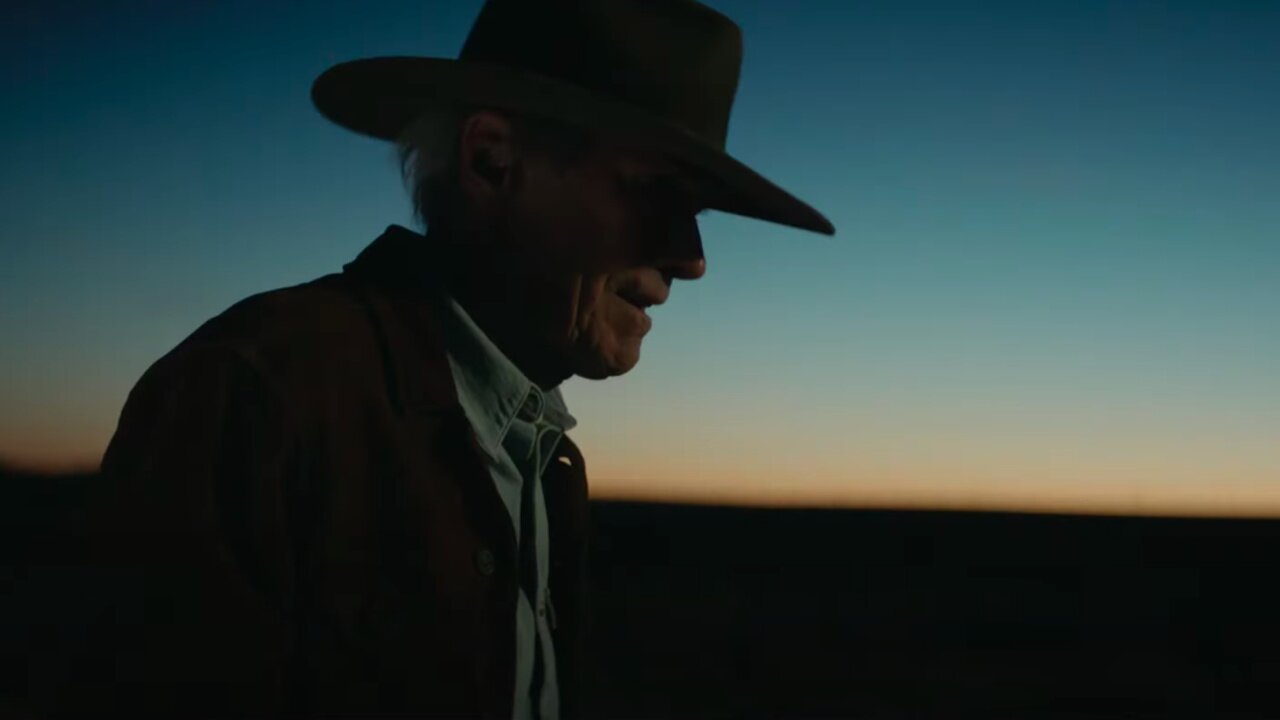‘Cry Macho’ Review: An Exhausted Clint Eastwood Says Goodbye to Filmmaking
Clint Eastwood directs his most tired film yet, and might have said farewell to an illustrious career in the process.
Watching “Cry Macho”, there’s the painful, almost agonizing, realization that this could very well be Clint Eastwood’s last movie. The 91-year old actor/filmmaker, who shot the film in one month during the COVID-19 pandemic, can still don a Cowboy hat and deliver yet another legendary performance as a leading role. He’s never once lost his touch as an on-screen Western icon, with films such as Sergio Leone’s “Dollars” Trilogy, “Hang ‘Em High”, “The Outlaw Josey Wales”, “Pale Rider”, and his best movie, “Unforgiven”. However, as a director, he sounds exhausted. The adaptation of N. Richard Nash’s novel of the same name on a former rodeo rider (Eastwood) who’s tasked by his former boss (Dwight Yoakam) to retrieve his son (Eduardo Minnett) in Mexico doesn’t feel as aesthetically exciting as Eastwood’s previous work, nor does it establish a compelling sense of pace. Instead, audiences are treated to witness Eastwood’s swan song to filmmaking through a debilitatingly paced neo-Western, with a drab aesthetic and cheap editing.
The suspension of disbelief is too unbelievable when Eastwood is supposedly rodeoing a horse on a stable, as the movie keeps cutting from his clearly obvious stunt double to himself riding a mechanical bull, as much as the camera and cross-cutting keeps trying to hide it. It’s obviously not a problem, given Eastwood’s age, but it perfectly demonstrates how little he cares about continuity, or crafting gripping set-pieces filled with life and raw emotion. There’s a major detachment from Eastwood’s usually beautiful cinematography and production design and the film’s acting. In fact, the acting is the only element that holds this film together. Nobody, and I mean, nobody, can do a Machismo-filled Cowboy the way Eastwood has done in his career, and he’s still retained the same indelible charm and the tough-grit persona he’s adopted throughout his films. As he walks the streets of Mexico with a Cowboy hat, always wearing it snug in his head and removing it only when necessary, there’s an odd sense of reminiscence permeating the way he talks and the way he walks, exactly the same way he did in films like “Unforgiven” and “Pale Rider”. Eastwood is effortlessly cool, and it’s even more impressive to see him still being as menacing as ever, while always remaining composed, especially when he throws a punch at one of the film’s main antagonists. Age definitely won’t stop him.
Eastwood is also very self-aware of his frailty and doesn’t shy away from it in his role. As he says, “You can’t fix old” while looking at a frail dog, you can’t help but have a big smile on your face, since the line also directs the filmmaker who seems too old to play another cowboy. But he does it with such grace and admiration that Eastwood’s acting skills, alongside terrific supporting work from Natalia Traven as restaurant owner Marta, holds the film together. The entire character of Michael Milo seems like a way for Eastwood to remember the legacy he left behind, for his audience and life-long fans to say thanks to an actor (and filmmaker) that has continuously pushed the boundaries of genre filmmaking. He’s done everything: westerns, action films, political thrillers, biopics, sci-fi, horror, comedy, drama, the works.
It’s just a shame that the film’s entire structure is as clichéd and cyclical as it comes, and its aesthetic compositions do not match Yves Bélanger’s work in Eastwood’s previous films. Ben Davis is an experienced cinematographer, but there are so many sequences that are poorly shot and lit, due to the film’s incessant inability to hide stunt doubles in an authentic way. And while there are sparse action sequences, none of them have any weight to them, as the editing is so haphazard and never allows the emotional impact of the movie to flow that any attempt to build weight towards Eastwood’s character, or any other protagonist for that matter, falls flat on its face. Because Michael feels detached from his boss’s needs, there’s no legitimate emotional bond that forms between him and Rafael (Minnett), which makes any attempt at pulling the audience’s heartstrings feel vapid and distant.
The dialogue is so perfunctory, and its supporting actors (with the exception of Minnett and Traven) deliver their lines with such soap opera-like ridiculousness it almost feels like a parody of modern Western films than a serious one, with a legitimate emotional crux. Eastwood’s last movie, “Richard Jewell”, had that emotional weight. It had serious performances from Kathy Bates, Sam Rockwell, and Paul Walter Hauser, and a gripping script that held the acting together to form Eastwood’s last truly great film. Because if “Cry Macho” will be Eastwood’s final movie as both an actor and filmmaker (at least that’s what it feels like), it honestly feels like an exhausted and rushed goodbye than anything else, instead of a proper send-off for one of the most influential filmmakers and actors in the entire history of cinema.



